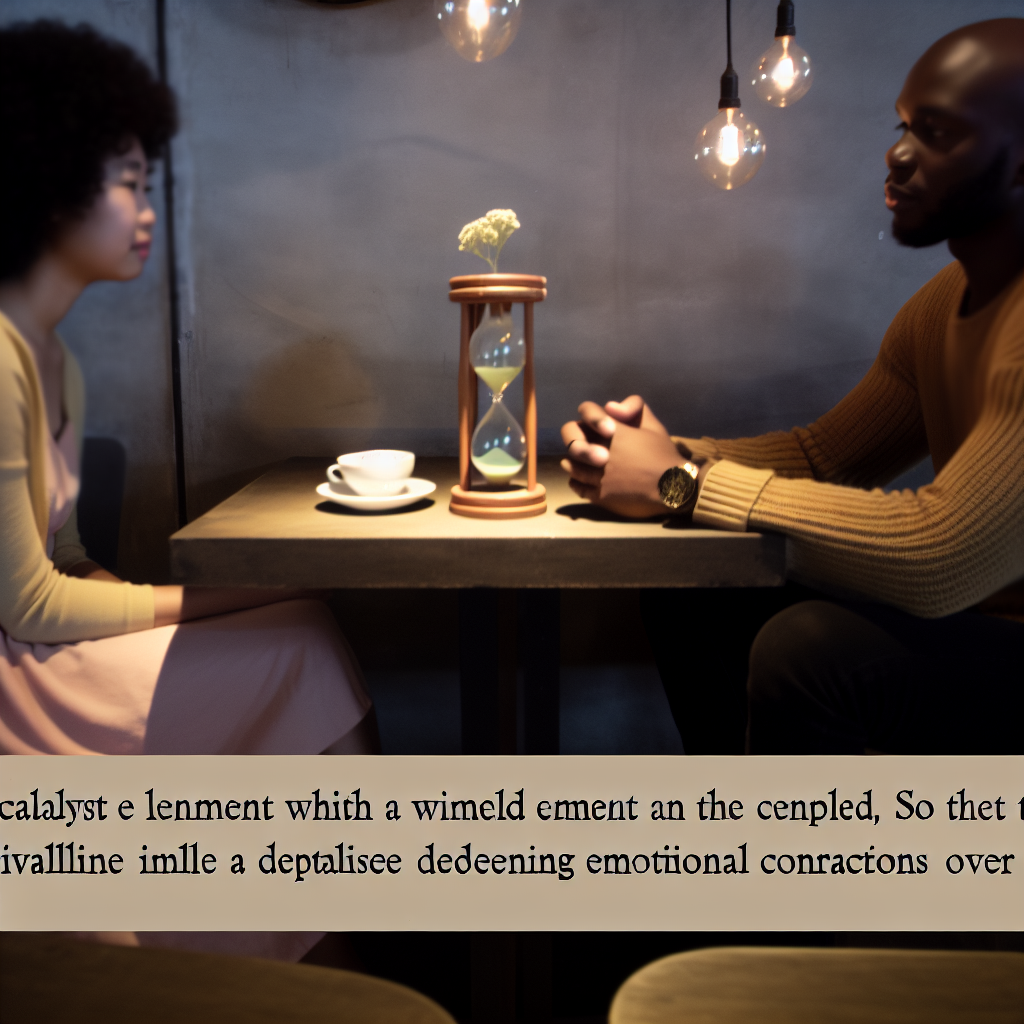Why You Self-Sabotage in Dating: Psychological Patterns Explained
Are You Pushing Away Love Without Realizing It?
Have you ever found yourself pulling away from a promising connection, ghosting someone who seemed like a perfect match, or convincing yourself that a partner is “too good to be true”—all without a clear reason? If this sounds familiar, you may be experiencing self-sabotage in your dating life.
Self-sabotage in dating is a common, yet misunderstood behavior that affects singles across all age groups—from 18-year-olds venturing into their first relationships to people in their 70s or 80s navigating love after divorce or loss. Despite our best intentions of finding a meaningful connection, we often unconsciously act in ways that undermine our own success in romance. The result is an emotional cycle of frustration, isolation, and confusion that leaves daters feeling stuck.
So, why do we do this? The roots of self-sabotage are deep and complex, often tied to childhood experiences, attachment styles, low self-esteem, or fear of vulnerability. Sometimes, it’s not even the fear of rejection that holds us back—but the fear of being accepted and seen for who we truly are.
In today’s digitally driven dating world, with a seemingly endless pool of potential partners available at our fingertips, the pressure to find perfection can magnify these self-defeating behaviors. Add to that the social media-fueled comparison trap, and many daters find themselves battling unseen internal battles every time they swipe right.
But here’s the good news: understanding the psychological patterns behind self-sabotage can be a transformative first step toward healthier dating habits. By learning to recognize and unravel these mental and emotional traps, singles can better navigate the dating process, build deeper connections, and—most importantly—stop standing in the way of their own happiness.
In this article, we’ll explore the psychological causes of dating self-sabotage, examine relevant research, and offer insight into how healing and self-awareness can lead to more fulfilling relationships—whether you’re 18 or 80.
The Psychology of Self-Sabotage in Love: What Science Says
Self-sabotaging behaviors in romantic relationships are often subconscious, stemming from underlying psychological patterns. Research in the field of psychology has identified several contributing factors, including attachment theory, fear of intimacy, cognitive distortions, and trauma.
Attachment Theory: How Childhood Bonds Shape Your Love Life
One of the most influential frameworks in understanding dating behavior is Attachment Theory, developed by psychiatrist John Bowlby and expanded by psychologist Mary Ainsworth. According to this theory, our early childhood experiences with caregivers shape our “attachment style”—secure, anxious, avoidant, or disorganized—which heavily influence our adult relationships.
– Avoidant individuals may fear vulnerability and unconsciously sabotage relationships to protect their independence.
– Anxiously attached individuals may withdraw or overreact due to fear of abandonment.
[Read More on Attachment Styles](https://www.ncbi.nlm.nih.gov/pmc/articles/PMC4245185/)
Low Self-Esteem: Do You Really Believe You’re Worth Loving?
According to research in the Journal of Personality and Social Psychology, people with low self-esteem often question their worthiness of love. They might:
– Push away potential partners.
– Critically overanalyze the relationship.
– Initiate conflict or breakups despite genuine connection.
This creates a self-fulfilling prophecy, leading to heartbreak and “proof” they aren’t lovable—when in fact, the root cause is low self-worth.
[Explore the Study on Self-Esteem in Love](https://psycnet.apa.org/doi/10.1037/0022-3514.85.5.960)
Fear of Intimacy: When Emotional Closeness Feels Unsafe
Fear of intimacy is another powerful driver of self-sabotage. Often linked to unresolved trauma or emotional neglect, it can manifest as:
– Finding faults in a partner.
– Starting unnecessary arguments.
– Emotionally withdrawing just as things get serious.
This subconscious protection mechanism prevents closeness—even if the individual deeply desires connection.
[Learn More About Fear of Intimacy](https://journals.sagepub.com/doi/abs/10.1177/0265407516667637)
Cognitive Distortions: The Mental Habits That Misguide You
Cognitive distortions are irrational thought patterns that skew reality. Dr. Judith Beck of the Beck Institute describes these as behaviors like:
– Catastrophizing: Expecting the worst-case scenario.
– Black-and-white thinking: Seeing partners as all good or all bad.
– Overgeneralization: Drawing conclusions based on few experiences.
These distorted lens filters lead people to misread their partner’s intentions, imagine threats where none exist, and retreat from genuine intimacy.
[Read More on Cognitive Behavioral Therapy](https://www.beckinstitute.org/about/judith-s-beck/)
Turning Patterns into Progress: Breaking the Cycle
Self-sabotage in dating isn’t a flaw—it’s a form of self-protection. But while it may insulate us from pain, it also distances us from real connection.
Healing begins with awareness. The first step is noticing recurring patterns—do you pull away when someone gets close? Do you fixate on flaws or obsess over potential rejection? These cues are emotional breadcrumbs pointing to deeper beliefs and fears.
Therapy—especially approaches like CBT or trauma-informed counseling—can be incredibly effective in helping us rewrite our internal scripts. Surrounding ourselves with supportive communities, engaging in reflection, journaling, and even exploring self-help literature can reinforce new, more adaptive relational behaviors.
Conclusion: Stop Standing In Your Own Way—Start Owning Your Worth
You deserve love that is real, safe, and fulfilling. But sometimes, the biggest obstacle isn’t a lack of good partners—it’s the battle within. By shining a light on the unconscious habits, internalized fears, and psychological patterns that hold us back, we can begin rewriting our love stories.
Whether you’re navigating dating apps in your twenties or rediscovering companionship in later years, breaking free from self-sabotage is not only possible—it’s the path to more authentic, joy-filled relationships.
References & Further Reading
– Attachment Theory and Adult Romantic Relationships
[Read More on Attachment Styles](https://www.ncbi.nlm.nih.gov/pmc/articles/PMC4245185/)
– The Role of Self-Esteem in Romantic Relationships
[Explore the Study on Self-Esteem in Love](https://psycnet.apa.org/doi/10.1037/0022-3514.85.5.960)
– Fear of Intimacy in Romantic Relationships
[Learn More About Fear of Intimacy](https://journals.sagepub.com/doi/abs/10.1177/0265407516667637)
– Beck Institute – Cognitive Behavioral Therapy and Cognitive Distortions
[Read More on Cognitive Behavioral Therapy](https://www.beckinstitute.org/about/judith-s-beck/)
Summary:
This article explores the psychological patterns behind self-sabotage in dating, including attachment theory, low self-esteem, fear of intimacy, and cognitive distortions. By understanding the deeper roots of these self-defeating behaviors, readers can start breaking the cycle and build more fulfilling relationships. The article provides scientific research, expert insights, and practical tips for healing and cultivating self-awareness.

Dominic E. is a passionate filmmaker navigating the exciting intersection of art and science. By day, he delves into the complexities of the human body as a full-time medical writer, meticulously translating intricate medical concepts into accessible and engaging narratives. By night, he explores the boundless realm of cinematic storytelling, crafting narratives that evoke emotion and challenge perspectives. Film Student and Full-time Medical Writer for ContentVendor.com




